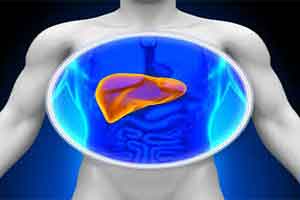- Home
- Editorial
- News
- Practice Guidelines
- Anesthesiology Guidelines
- Cancer Guidelines
- Cardiac Sciences Guidelines
- Critical Care Guidelines
- Dentistry Guidelines
- Dermatology Guidelines
- Diabetes and Endo Guidelines
- Diagnostics Guidelines
- ENT Guidelines
- Featured Practice Guidelines
- Gastroenterology Guidelines
- Geriatrics Guidelines
- Medicine Guidelines
- Nephrology Guidelines
- Neurosciences Guidelines
- Obs and Gynae Guidelines
- Ophthalmology Guidelines
- Orthopaedics Guidelines
- Paediatrics Guidelines
- Psychiatry Guidelines
- Pulmonology Guidelines
- Radiology Guidelines
- Surgery Guidelines
- Urology Guidelines
Perioperative Ketorolac Use: A Potential Risk Factor for Renal Dysfunction

A new study published in the Annals of Transplantation aimed to evaluate the impact of ketorolac use after live-donor nephrectomy (LDN). Ketorolac is a nonsteroidal anti-inflammatory drug indicated for pain control after surgeries in many fields.
In this study, Takahashi K1 et al. evaluated data on 251 patients who underwent laparoscopic LDN from April 2008 to March 2016 was reviewed. Glomerular Filtration Rate (GFR) and GFR percentage at 2 weeks, 6 months, and 1 year after LDN were compared between patients with and without ketorolac administration. The results showed that GFR, at 1 year, was significantly lower in patients who received ketorolac than in those who did not. While, the differences in GFR and GFR percentage between 2 weeks and 1 year after LDN was considerably lower in the ketorolac group. On the other hand, urinary albumin/creatinine ratio, 1 year after LDN, was markedly higher in the ketorolac group compared to the non-ketorolac group. Furthermore, it was observed that ketorolac use was an independent risk factor for low GFR percentage 1 year after LDN. Hence, it was concluded that ketorolac is a risk factor for renal dysfunction if used long term, after LDN. It was stated that prospective clinical trials are needed to reassess the safety of this drug.
For further study log on to :
https://www.ncbi.nlm.nih.gov/pubmed/28924138

Disclaimer: This site is primarily intended for healthcare professionals. Any content/information on this website does not replace the advice of medical and/or health professionals and should not be construed as medical/diagnostic advice/endorsement or prescription. Use of this site is subject to our terms of use, privacy policy, advertisement policy. © 2020 Minerva Medical Treatment Pvt Ltd